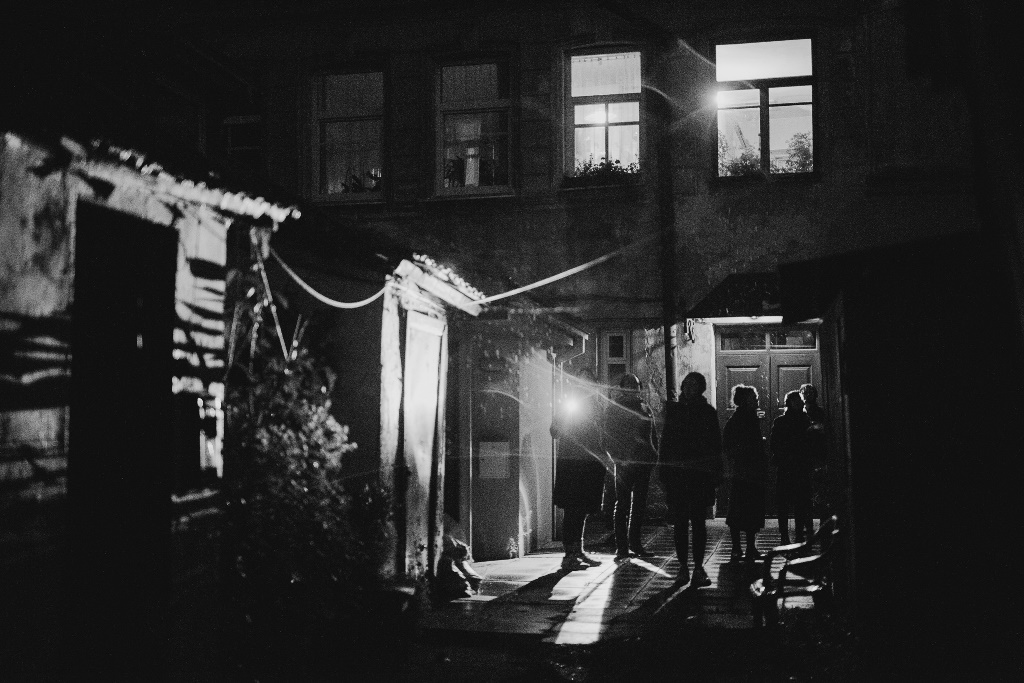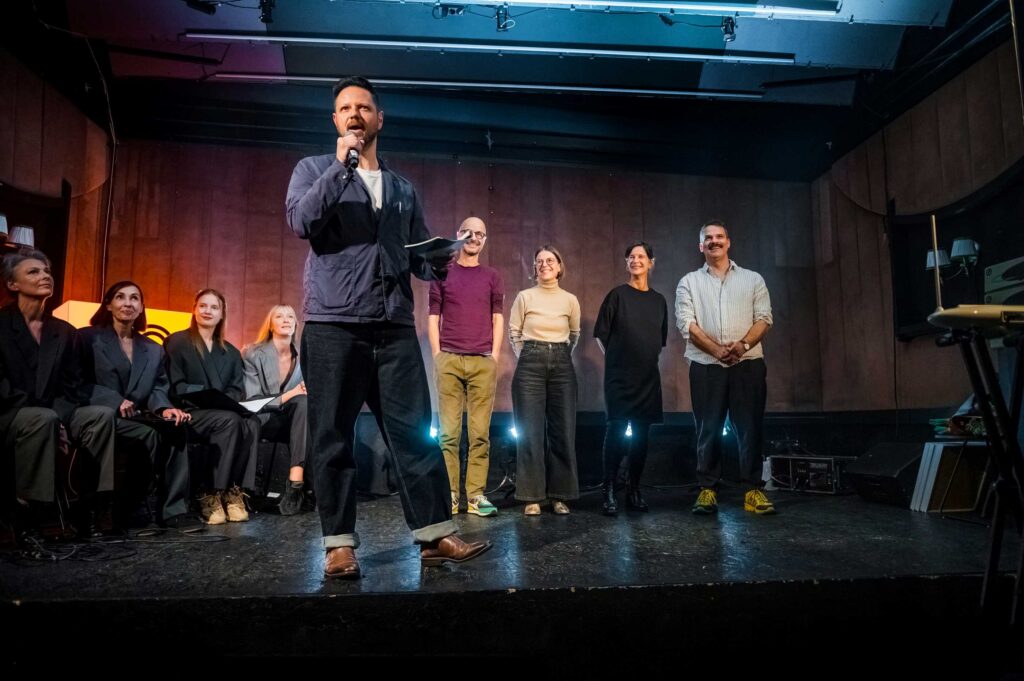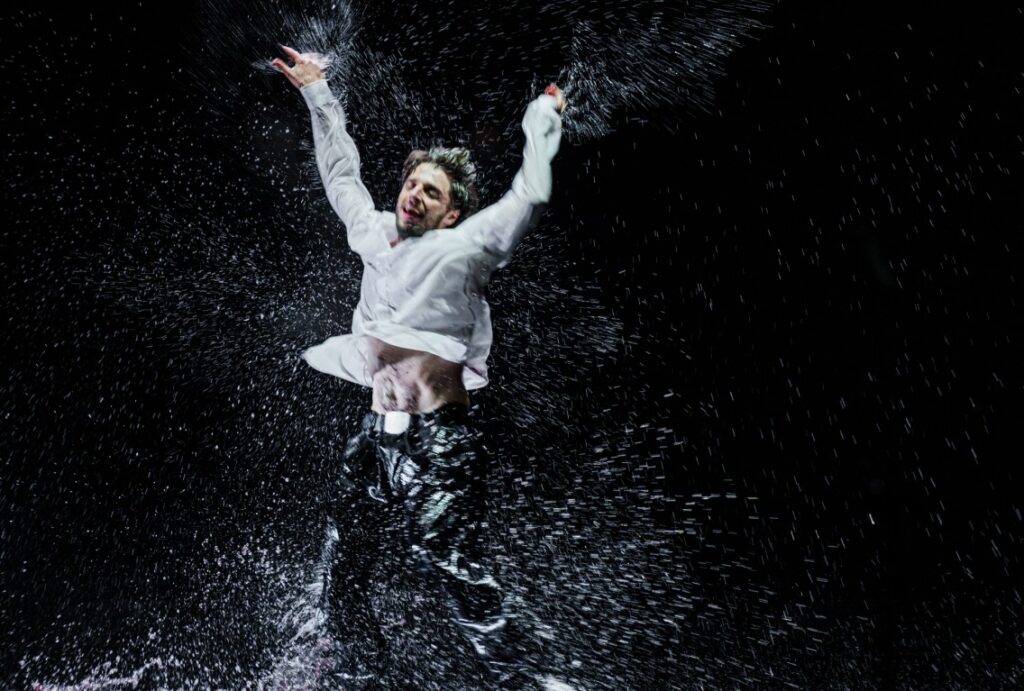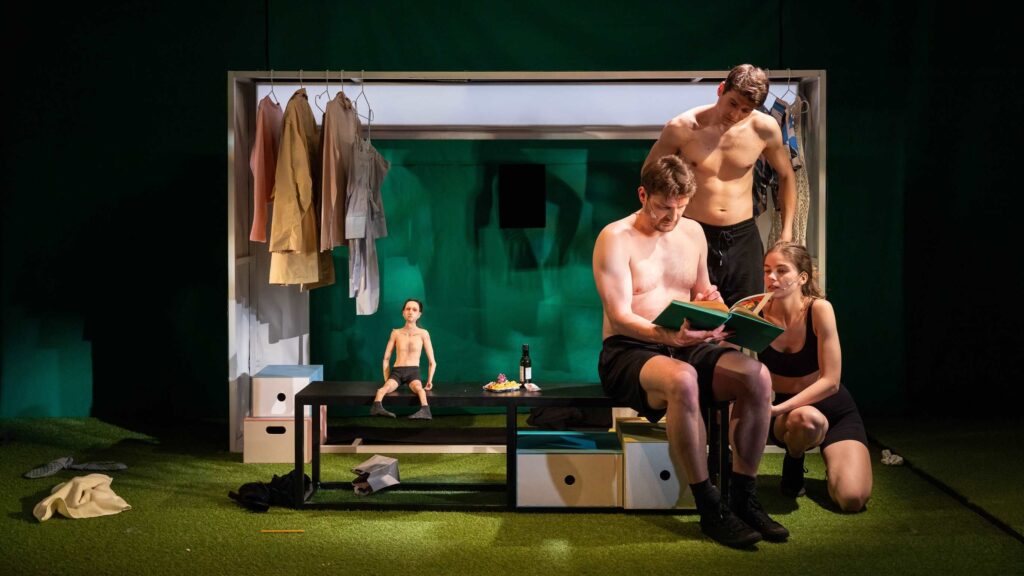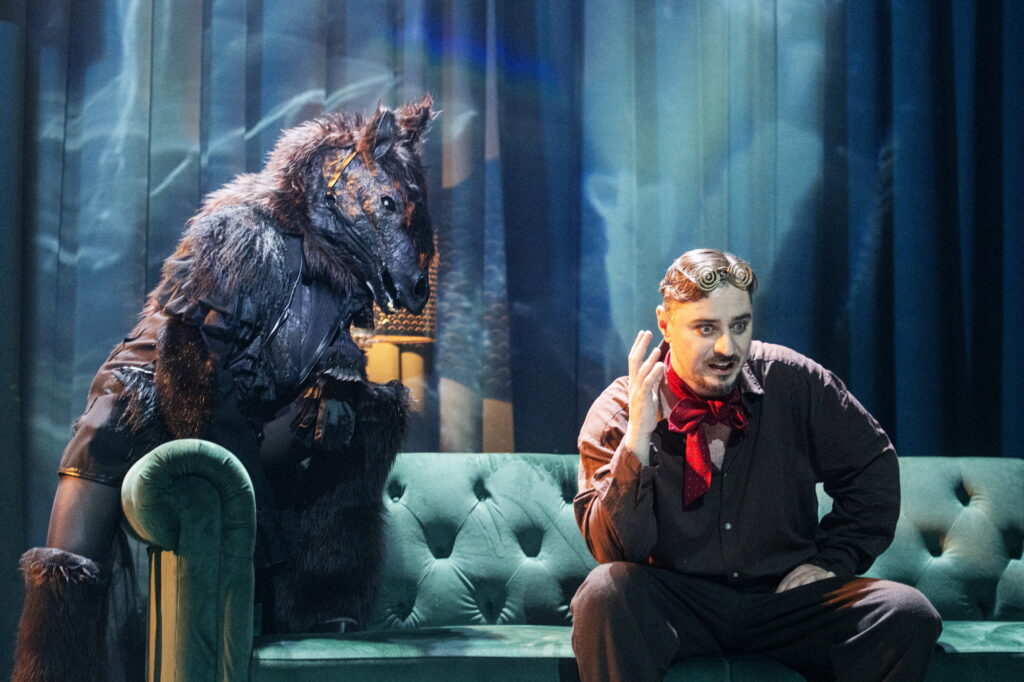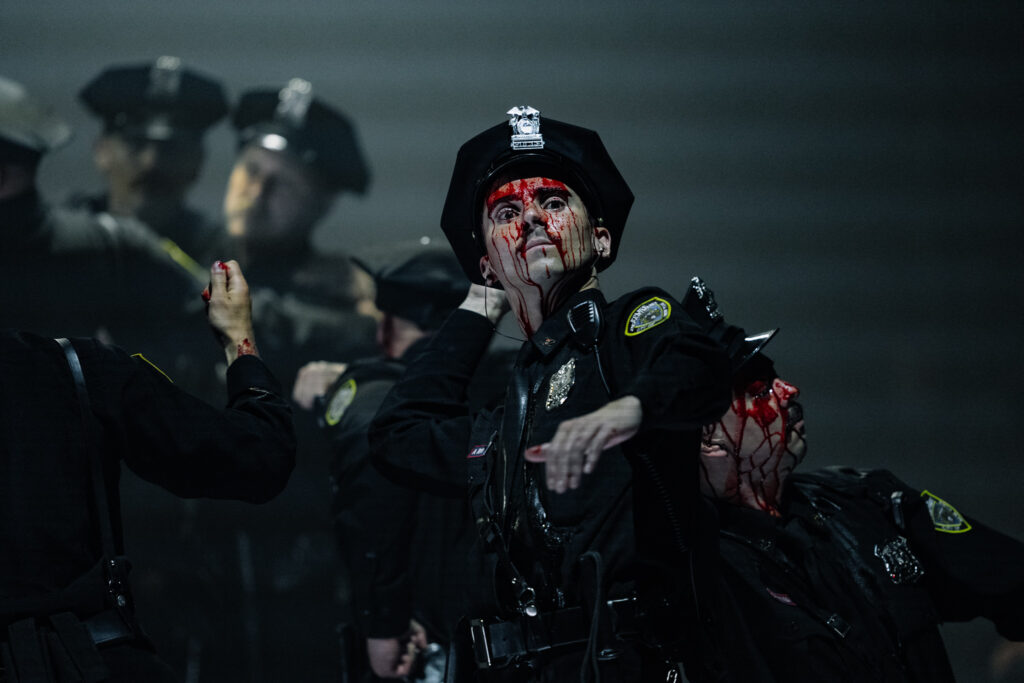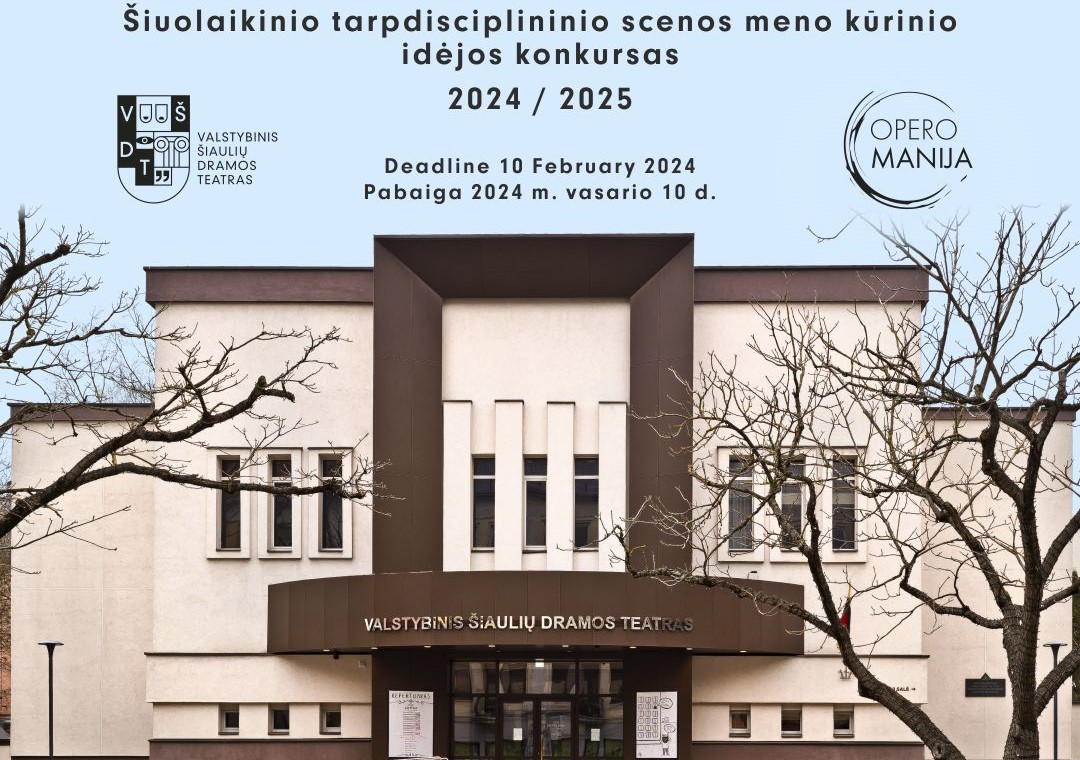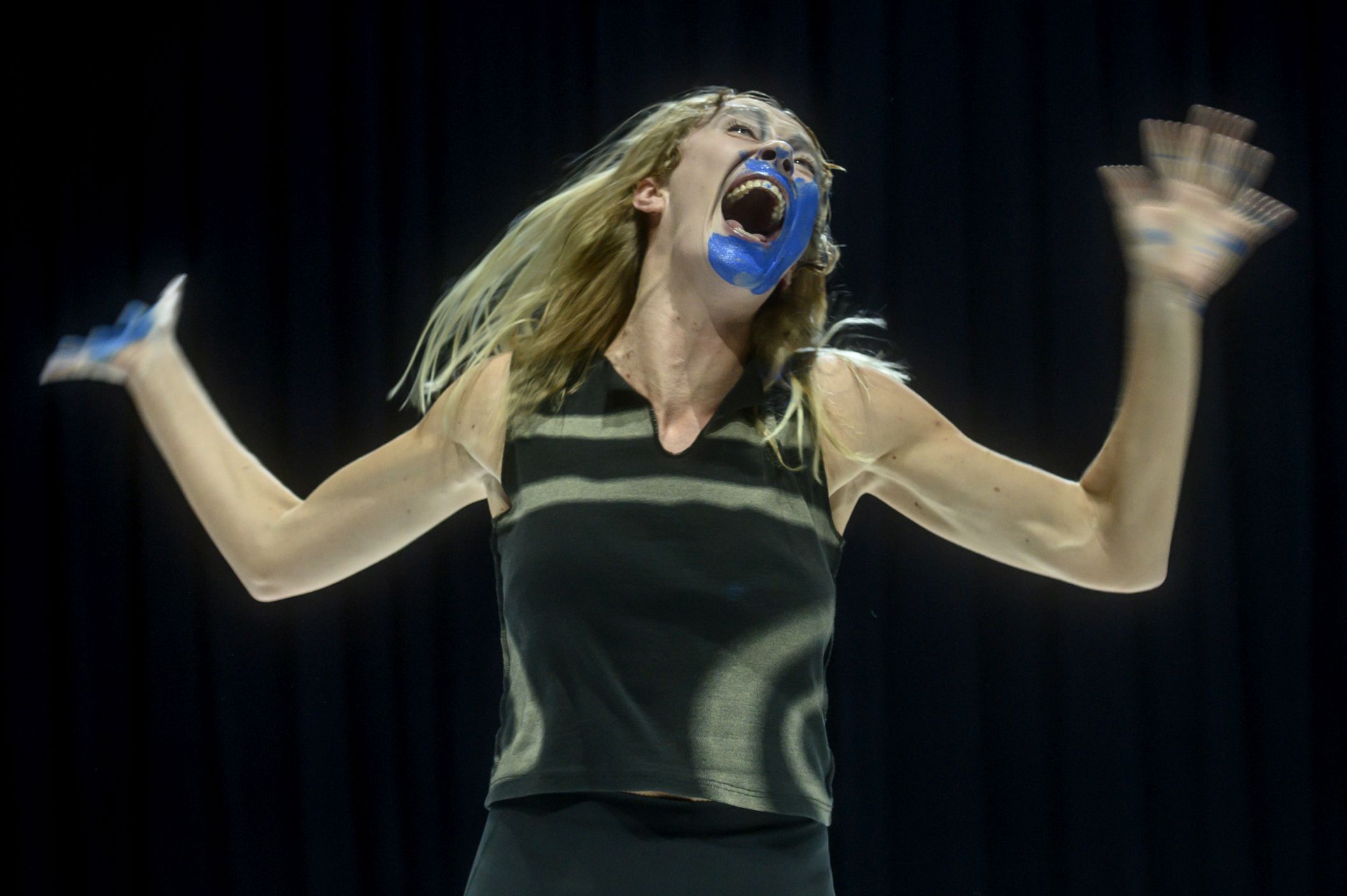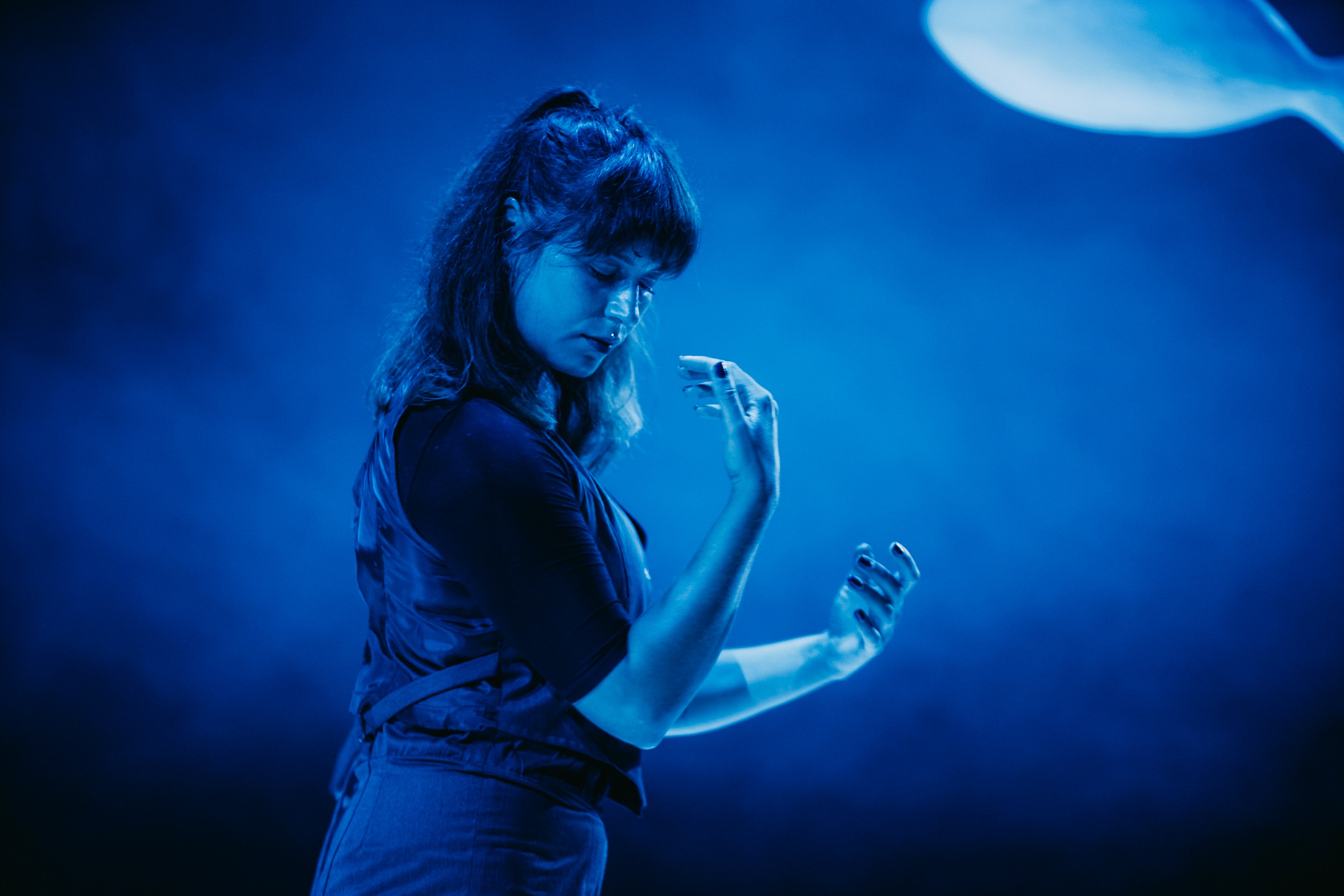Since 2008, the creative company OPEROMANIJA, which develops and produces the genre of new opera, has already organised seven international opera festivals New Opera Action (NOA) as well as several global premieres of non-festival operas. Every year, the company invites contemporary art creators both from Lithuania and abroad to take part in creative residencies/camps. Part of the production of OPEROMANIJA has been granted the most significant performing arts awards in Lithuania (Golden Stage Crosses) as well as numerous international prizes. Having started from a short opera format in 2008, NOA organisers soon developed it into a festival with contemporary opera debuts presented in tours ranging from New York to Shanghai. So far, OPEROMANIJA has shown around fifty works. In this article, only the stagings that have crossed the festival boundaries and become part of an actively shown repertoire of OPEROMANIJA production on the Lithuanian and foreign stage will be presented in more detail.
One of the first works to have earned wide acclaim is the mono performance-opera Isadora (librettist Dainius Gintalas, composer Jonas Sakalauskas, director Agnius Jankevičius); the premiere took place on December 29, 2008. Here, for one hour opera soloist Agnė Sabulytė embodies Isadora - a patient in psychiatric hospital who gets so engrossed in the autobiographic book My Life by modern dance pioneer Isadora Duncan that she eventually loses her own identity. In pursuing the events of a foreign life, mono performance-opera character Isadora destroys her own life as well as the lives of the people surrounding her.
“Isadora questions the definition of opera radically and recklessly by approaching dangerously the genre perversions and ending up in its peripheries (the creative group has also expressed their doubts concerning the genre by attributing a heavyweight title 'mono performance-opera' to Isadora),” musicologist Asta Pakarklytė observed in the annual Lietuvos teatras. The performance was granted the prestigious Lithuanian theatrical award Golden Stage Cross in the debut of the year category.
Among the productions by OPEROMANIJA, there are various genres, semi-genres and post-genres: opera-installations, comic-strip operas, nano operas and etc. One of the most prominent works of the company Have a Good Day! (Lith. Geros dienos!; short version premiered in 2011, long version - in 2013) is referred to as an opera for ten voices, electronic music and piano. The creative group of Have a Good Day! consists of the following trio[1]: librettist Vaiva Grainytė, composer Lina Lapelytė and director Rugilė Barzdžiukaitė.
The opera Have a Good Day! is a kind of an ode to capitalism; an illustration of inevitability of consumerism. Here, an anonymous cashier we encounter every day acts as a collective character of a sales person. The creators refused classical singing: the cashiers' arias often sound like repetitive, banal melodies reminding of monotonous, endless travelling of goods on a conveyor belt. The minimalist opera music is comprised of various ambient recordings and a range of acoustic sounds from a shopping centre. “Clever, charming and quietly subversive. Whatever critique of capitalist entrapment and consumerist obsession might be implied is conveyed with subtlety and wit,” Steve Smith stated in the New York Times.
In 2013, the International Theatre Institute ITI selected the opera Have a Good Day! for the finals of the competition Music Theatre NOW (Biennial for Performing Arts, Jönköping, Sweden), where the work was awarded the Globe Teana-Theatre Observation Prize. In 2014, Have a Good Day! was awarded the Golden Stage Cross as the best Lithuanian authors' staging of 2013 and was also given two prizes at the Baltic Theatre Festival (Riga, Latvia). In 2018, the trio of the creators of the opera Have a Good Day! received another prestigious award - the Earring of Borisas Dauguvietis (the special prize of the Golden Stage Cross) - for the search of new forms of performing arts expression.
The performance has been presented in various international music, theatre and opera festivals in Lithuania and abroad (Shanghai international contemporary theatre festival ACT, New York contemporary music-theatre and new opera festival Prototype, Moscow theatre festival Golden Mask, Baltic Theatre Festival in Riga, various festivals in France such as Automne en Normandie in Le Havre, Next in Lille, and Exit in Créteil).
Following the performance in New York, Lithuanian-American film-maker Jonas Mekas - often referred to as the godfather of American avant-garde cinema - wrote, “It's like a mini masterpiece. It's just nothing to take away, nothing to add - it's very solid, very simple and very real.”
Among the original, unique genres produced by OPEROMANIJA, there is also the spatial opera in the dark Confessions. It is one more piece that keeps visiting various foreign festival stages. The concept and composition of Confessions: Jens Hedman (Sweden), Rūta Vitkauskaitė (Lithuania/Great Britain), Åsa Nordgren (Sweden). The performance premiered in 2015. The seven parts of Confessions are concerned with the seven cardinal sins - lust, gluttony, greed, sloth, wrath, envy and pride. The intuitive relationship that appeared between the creators at the beginning of the collaboration is transferred to the opera at a musical level. Confessions unites the authors' long-cherished ideas of creative experiments: performing music in the dark, involving other senses (smell, touch) and allegedly completely removing the visual aspect. “How far can our imagination take us? What images are formed in our consciousness when it is irritated by the outer world? And what are those irritants that produce similar states, sensations or images? And does our imagination really become one collective imagination when we take part in a common event? In order to share and study this phenomenon we produced this spatial opera,” composer Rūta Vitkauskaitė stated.
The spatial opera in the dark Confessions has been presented in various concert halls, theatres and festivals in Lithuania, Sweden, Germany, the Netherlands, Estonia and Great Britain. In 2016, the opera was granted the Golden Stage Cross for the best music. It has also received the Musical Nail of the Year award established by the Lithuanian Composers' Union.
Composer Arturas Bumšteinas, the author or several works produced by OPEROMANIJA has been awarded the Earring of Borisas Dauguvietis (the special prize of the Golden Stage Cross) for innovative and original theatrical solutions (integration of audio experiments in new theatrical forms - performances Olympian Machine and Bad Weather (Lith. Blogi orai)).
The sound installation-performance Olympian Machine (author of the idea and sound editor Arturas Bumšteinas; premiered in 2018) is a work for 12 voices, presented as a radiophonic sound installation consisting of twelve loudspeakers and a synchronous text projection. During the recording, the participants of the piece were invited to the sound studio for one hour. Each individual was read a brief summary of a famous classical text, after which everyone was asked to comment on what they remembered from the story that they had just heard. Various personal deviations from the text were welcome but not encouraged in any way, seeking to preserve the spontaneity of subjective associations. This piece presents to the audience a polylogue of voices that reviews issues of history, memory and communication.
Musicologist Rasa Murauskaitė (Kultūros barai) wrote, “Bumšteinas took all these philosophical, humorous and phantasmagorical ideas of the twelve people revealing confusion, anger and excitement and made a collage of meanings, opinions, colours and moods out of them. Olympic Machine is a kind of research on memory which reveals how the same topics, words, names, emotions and associations are repeated in the stories told by different people.”
Bad weather is another work by this composer. The baroque theatre noise machines performance Bad weather (author of the idea and stage director Arturas Bumšteinas, librettist and text performer Ivan Cheng; premiered in CRICOTEKA, the Centre for the Documentation of the Art of Tadeusz Kantor, Unsound festival in Krakow, in 2017) is a performative sound art event. Together with a professional set designer, Bumšteinas re-created the devices imitating the sounds of wind, rain, sea and thunder, identical to the ones that had settled in the European theatre in the 17th century. In Bad Weather, the noise machines are generators of conceptual “climate” but, like any other man-made mechanisms, the wind machine is not a self-operating perpetuum mobile: its spontaneity is influenced by human muscle and their creative will.
Akvilė Zarankaitė (Literatūra ir menas) expressed her opinion, “This work - imitating unsettling and even threatening nature sounds in a safe environment - is different with each time, even though it has a very clear central axis, i.e. the noise machines. It encourages spectators to analyse, observe and, most importantly, listen to the environment; to question the sources of sound and evaluate mechanical ways employed to stimulate imagination. /.../ Taking part in this sound performance reminds of Pauline Oliveros' deep listening meditations urging to be here and now, to develop attentiveness.”
Another opera - the chamber opera α (Alpha) - is a variation on the eternal theme of truth (librettist Gabrielė Labanauskaitė-Diena, composer Albertas Navickas, stage director, set and costume designer dr. Gora Parasit; 2018). The main character of the opera is Isabella, the sister of Federico Garcia Lorca, one of the most famous Spanish poets and playwrights of the 20th century. In α, Isabella returns to Spain after many years of emigration to reveal the secrets of her brother's fate as the circumstances of the writer's death are still blurry. “Not only it is an opera - it is a 'comic-strip opera' about a female superhero who is fighting both supernatural and earthly demons; about her trials and struggles in the world. To me, the opera α resembles a set of pages, a comic book. The opera α is MEGA-feminine,” stage director Dr. Gora Parasit said.
Latvian performing arts critic Lauma Mellēna(Menų faktūra) wrote, “The aesthetics of the staging is flirting with feminism, comic-strips and the visuality of computer games. The directing language employs elements of pantomime theatre; there's a conceptually developed composition of lights and colours. /.../ The English subtitles aren't projected with the help of a special subtitle machine but are integrated into the set design by using them as comic-strip texts in the context of stage action - a witty and highly innovative method.”
In the autumn of 2019, OPEROMANIJA presented its most recent creation focusing on the Holocaust memory in Lithuania. The Filler (Lith. Glaistas) is a sonic walk in the former ghetto of Vilna (dramatist Rimantas Ribačiauskas, director Mantas Jančiauskas, composers Jūra Elena Šedytė and Andrius Šiurys).
Performing arts critic Rima Jūraitė (Menų faktūra) observed, “In The Filler, it's the atmosphere and not the audience that is directed. It's a trip around the former ghetto and a sonic encounter with its real inhabitants, the last living witnesses of the Holocaust. And, most probably, it's a meeting with the city and one's own self. And yet, it's not just a documentary, oral story - here, the memories and thought fragments of the four Vilna Jews captured in audio recordings turn into soundscapes. Breaking voices dissolve into a polylogue and, eventually, turn into one acoustic environment integrating urban spaces and, sort of, grounding the Jewish Vilnius.”
[1]In 2019, these creators were also granted the Golden Lion Award of the Venice Art Biennale for the opera-performance Sun & Sea (Marina) (Lith. Saulė ir jūra (Marina)).

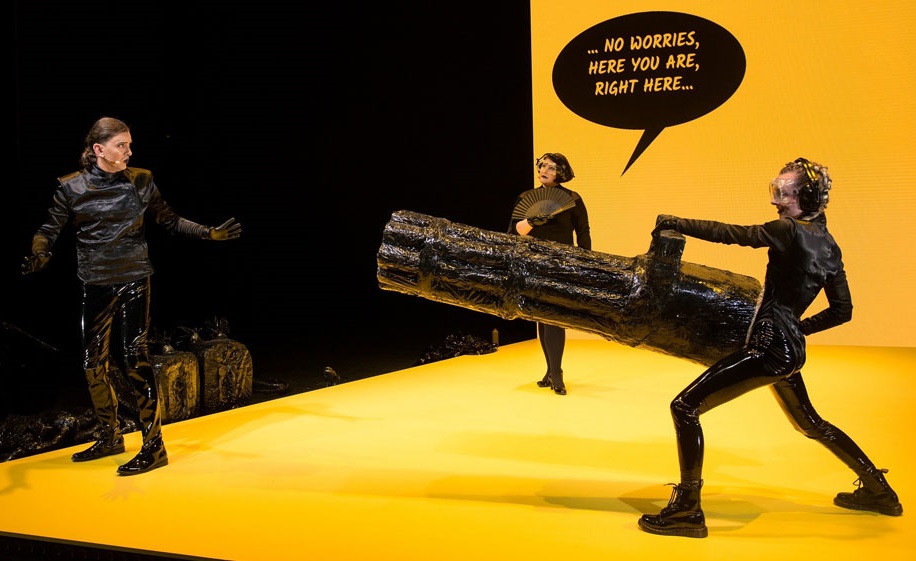
 Deivaras Kaleininkas.jpg)
_studio_FilmLOVE.jpg)
